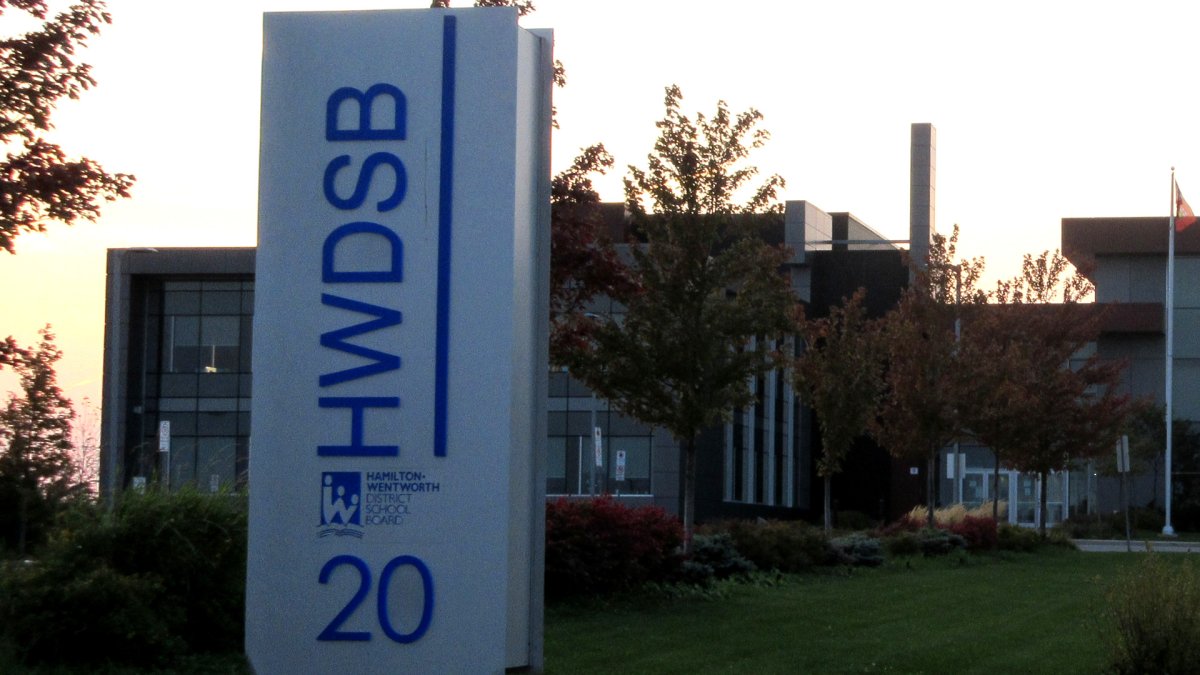There’s some good news on the way for Hamilton students who have faced challenges in getting to and from school.

According to a report presented to the Hamilton-Wentworth District School Board on Monday, the rotating bus cancellations that have been in place since September will soon be a thing of the past.
Hamilton-Wentworth Student Transportation Services (HWSTS) says the number of open routes has dropped to six — compared to 22 open routes when the rotating cancellations began.
Those cancellations are expected to be completely eliminated by mid-December.
Stacey Zucker, associate director of support services, said it’s a significant improvement but added that there’s still work to be done, including recruiting more drivers.
“It doesn’t mean that we have enough drivers necessarily to cover every run. It means that there are mitigating circumstances that the providers are able to do to eliminate the cancellations.”
The board had also looked at the feasibility of adding midday runs to give high school students the option of going home after their morning classes instead of attending study hall, but a survey of students without access to public transportation found that it wouldn’t be cost-effective to offer midday transportation.
Of those who responded to the survey, 151 students said they would like midday runs, while 33 said they would stay for study hall.
Zucker said it’s ultimately not feasible to provide midday runs on top of end-of-day bus transportation.
“Based on the data that we collected, based on the fact that we still are in a driver shortage, based on the fact that we would not be able to eliminate any end-of-day runs, so this would become a budget constraint … we are not recommending midday runs at this point.”
The board is facing a deficit of $18,695,000, and Zucker said that does take into account the entire $9 million from the board’s reserve funds.
The board is still waiting to hear from the Ministry of Education on when it might receive its share of the additional federal funding that was allocated to the province for schools impacted by COVID-19.
Trustees also unanimously supported a motion from vice-chair Dawn Danko to create more space in its remote learning system as the demand for online learning grows with an increase in local COVID-19 cases.
Remote class sizes have been identified as a growing challenge, with as many as 31 students per class in some virtual classroom settings.
Danko said the motion gives the board “flexibility” to use the remaining $1.9 million from reserves to ease those pressure points.
“To try to minimize any type of reorganization of classes,” said Danko. “Because we’ve seen how disruptive that can be for students and staff.”
The board is also moving the next transition period between in-person and virtual learning from January to February — or even potentially eliminating it altogether and accommodating any individual requests to switch between remote and in-person learning on a case-by-case basis.
The board’s director of education Manny Figueiredo said that’s due to the fact that they cannot have another large-scale reorganization like the one at the beginning of November.
He said they’ll bring an update on the status of the next transition period during a January board meeting when they also hope to have news about additional funding from the ministry.




Comments